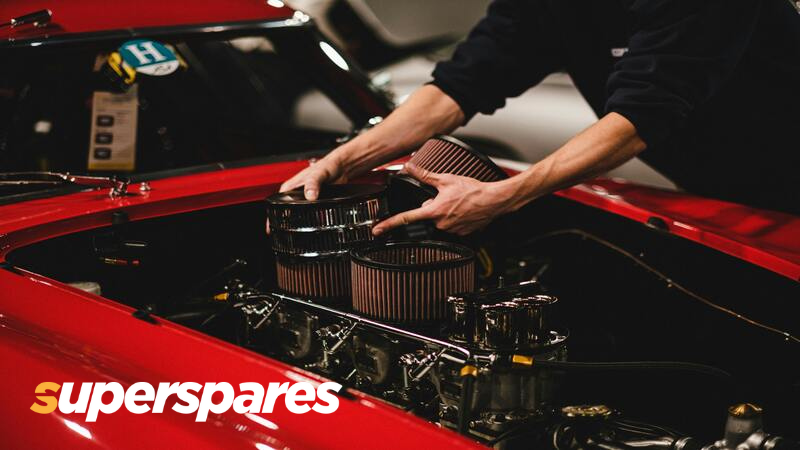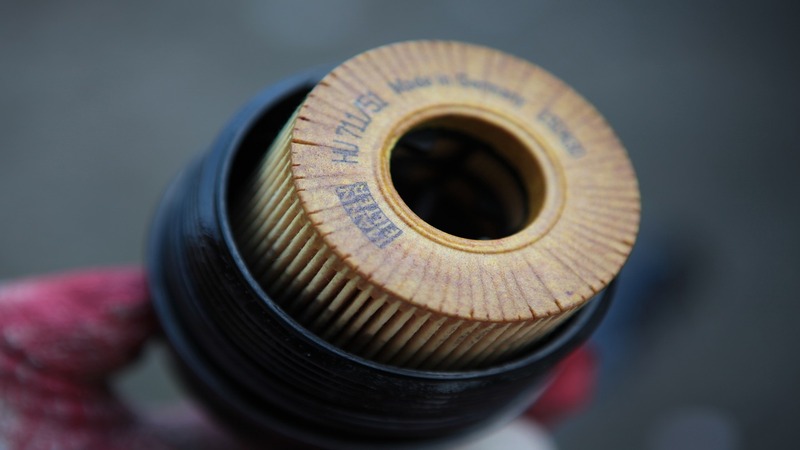
Every vehicle houses four main car filters - cabin, oil, fuel, and air. Their mission? To catch any and all impurities and contaminants that could affect your vehicle's performance. But when they falter, so does your car’s heartbeat. Power loss? Increased fuel consumption? Dirty smoke clouding your rearview mirror? These could all be warning signs that one of your car filters is clogged.
On the other hand, keeping these filters in prime condition can launch your car into spheres of peak functionality and fuel economy beyond your expectations. So let’s discuss these car filters in detail, including what purpose they serve in your car and when you should think about changing them.
Understanding the Four Essential Car Filters
Car filters, namely cabin filters, oil filters, fuel filters, and air filters, are like the guardians of your vehicle. They catch impurities such as dust, dirt and contaminants from air and fuel that can harm your engine or muck up your cabin air. Without them doing their job right, things could get messy (literally).
-
Oil Filters: Your engine runs smoothly thanks to these by keeping nasty bits out of the motor oil.
-
Air Filters: These guys ensure only clean air reaches your engine's combustion chamber. A dirty air filter equals poor performance; it’s simple math.
-
Cabin Filters: Ever enjoyed a drive without sneezing or wiping dust off? Thank these for filtering out pollutants from entering the inside.
-
Fuel Filters: Whether petrol or diesel, fuel filters catch dirt, rust, and other debris that’s in your fuel and stop it from entering the engine.
Keeping up with all four - oil, fuel, air, and cabin filters isn't just crucial for dodging mechanical failures; it's also essential in ensuring your ride operates at its best.
The Critical Importance of Oil Filters
Let's get one thing straight: oil filters are the unsung heroes in the lifeblood system of your car. They only let clean motor oil in and keep out dirt, metallic particles, etc. You've got two basic types of oil filters hanging around under your bonnet – primary and secondary oil filters. The primary filter, also known as full-flow filter, deals with all that engine-lubricating goodness directly from start-up. It’s like your front-line defence against contaminants.
The secondary filter, or bypass filter, plays back up but digs deeper - it filters less than 10% of the motor oil used by the engine, but it also filters out smaller impurities that might have slipped past the primary filter. Both the primary and secondary filters work in tandem to ensure nothing causes a problem with your motor oil.
A clogged-up filter can turn into big trouble down the road — aka, less engine performance and grimy gunk circulating inside precious parts leading to wear-and-tear faster than you'd want. So don't skip on this simple swap-out because it could save heaps down the line. Now, when should you change your oil filter?
If you're cruising on easy streets without much fuss (think average driving conditions), then every 8,000kms or so is a good rule of thumb for an overhaul. Towing trailers or dancing through dirt roads more often? Then give those filters some love every 5,000kms instead because hard work deserves extra care.
Fuel Filters: Petrol and Diesel Variants
Fuel filters for petrol cars and diesel fuel filters stop harmful particles that are in fuel from entering your engine. The fuel filters of petrol cars catch impurities like dust and rust but aren't under as much pressure as their diesel counterparts. Diesel cars demand high-quality filtration because any dirt in the diesel can lead to significant engine damage or reduced performance due to how combustible their fuel is.
Filters for petrol engines can stop particles as small as 10 μm, while diesel fuel filters stop particles as small as 3 μm. But here’s something crucial - no matter which type of car you drive, replacing its fuel filter regularly ensures that only clean fuel makes its way through your vehicle’s veins.
For petrol engines, think about giving them a new lease on life every 20,000 km or so. And those with a penchant for diesel? Tighten up those intervals to every 10,000 - 15,000 km. The bottom line is that whether you’re rolling in a sleek petrol model or rumbling around in a robust diesel beast paying attention to your fuel filter does more than just save pennies at the pump but protects against pollutants and ensures optimal performance.
Maximising Engine Performance with Air Filters
Clean air is not just about keeping your cabin fresh; it's crucial for your car’s combustion process too. When the engine runs, it sucks in air along with particles like dust, dirt, and other contaminants. So what does a car air filter do? It ensures that only clean air reaches the engine for combustion, which is crucial for optimal performance and longevity.
A clogged air filter will make fuel economy plummet like a lead balloon because if there's insufficient airflow into the engine chamber, it throws off the balance between fuel and oxygen needed for efficient combustion. The result? For one, your vehicle guzzles more petrol or diesel than usual. You might even find yourself dealing with nasty emissions like black smoke trailing behind.
Often, switching out that clogged-up air filter could be all it takes to breathe new life into how well your car performs. And as most air filters cost between $20 to $60, there’s really no reason not to change them as soon as they start negatively impacting your car’s performance.
Enhancing In-Car Air Quality with Cabin Filters
Now let's talk about something that often flies under the radar but has a massive impact on your driving experience - cabin air filters. So what is a cabin filter? It’s the component of a vehicle's ventilation system that filters the air entering the passenger compartment. It traps dust, pollen, smoke, and other airborne particles, improving air quality inside the car.
While a clogged cabin filter doesn’t impact your car’s performance, it does impact the air quality, so a clogged filter won’t stop pollen, dust mites, or other allergens and it won’t be able to filter out odour. And who wants a smelly car? The rule of thumb is to swap out your cabin filters every year or two to keep the air in your cabin fresh and clean.
Recognising the Signs It's Time for a Filter Change

Yes, you should replace all four types of car filters preventively. But, well, mistakes happen. So here are some signs that you should prioritise changing your filters as soon as you can.
Signs of clogged oil filters:
-
Decreased Oil Pressure: A clogged filter restricts oil flow, leading to reduced oil pressure, which may trigger the oil pressure warning light on your dashboard.
-
Loud Engine Noise: Insufficient oil flow due to a clogged filter can result in increased friction between engine components, leading to louder engine operation.
-
Dirty or Dark Oil: If the oil appears dirty or dark even after an oil change, it could indicate that the oil filter is not effectively trapping contaminants, leading to a clog.
-
Engine Overheating: A clogged oil filter can cause the engine to overheat due to inadequate lubrication and cooling, potentially leading to serious engine damage.
Signs of clogged fuel filters:
-
Engine Misfires: A clogged fuel filter can lead to insufficient fuel supply to the engine, resulting in misfires or sputtering during acceleration.
-
Engine Stalling: Reduced fuel flow due to a clogged filter can cause the engine to stall, especially at higher speeds or under load.
-
Decreased Performance: Poor engine performance, including sluggish acceleration and reduced power output, may happen due to inadequate fuel reaching the engine.
-
Difficulty Starting: A severely clogged fuel filter can make it difficult for the engine to start, or it may require multiple attempts before starting.
-
Fuel Efficiency Decline: A clogged fuel filter can lead to decreased fuel efficiency as the engine compensates for the lack of fuel by burning more fuel to maintain performance.
Signs of clogged air filters:
-
Reduced Engine Performance: A clogged air filter restricts airflow to the engine, leading to decreased power output, sluggish acceleration, and poor fuel efficiency.
-
Increased Engine Noise: Insufficient air supply to the engine can result in louder engine operation, particularly during acceleration.
-
Black Smoke from the Exhaust: A clogged air filter can cause an imbalance in the air-fuel mixture, leading to incomplete combustion and the emission of black smoke from your exhaust.
-
Engine Misfires or Stalling: In severe cases, a heavily clogged air filter can lead to engine misfires or stalling, especially during acceleration or under load.
Signs of clogged cabin filters:
-
Reduced Airflow: A clogged cabin air filter restricts airflow through the vehicle's HVAC system, leading to decreased airflow from the vents and reduced effectiveness in heating or cooling the interior.
-
Musty or Unpleasant Odours: An accumulation of dirt, dust, and other contaminants in the cabin air filter can lead to musty or unpleasant odours emanating from the vents when your HVAC system is running.
-
Foggy Windows: Reduced airflow caused by a clogged cabin air filter can contribute to moisture buildup inside the vehicle, leading to foggy windows and reduced visibility.
DIY vs. Professional Filter Changes
Now, let’s talk in practical terms - are filter changes included in car servicing? Yes, so if you have a mechanic regularly service your car, you shouldn’t have to worry about changing the car filters by yourself. On the other hand, if you know how to service your own car, even just the basics, you should be able to change your car filters without too much hassle. All you need are the proper tools and some high-quality car filters.
Where Can You Get High-Quality Car Filters?
At Superspares, we have all the service essentials you need to keep your car running smoothly - and that includes high-quality but affordable oil filters, diesel fuel filters, air filters, and cabin filters. Simply place your order online and we will deliver it anywhere in Australia. You also get a 7-day money-back guarantee and free shipping for orders over $100!
So get the car filter you need and maximise your car’s performance as early as tomorrow. If you have any questions or need any assistance, feel free to contact us at any time - we provide 24/7 customer support, so you won’t have trouble reaching us at any point.







